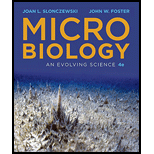
Concept explainers
To review:
The definition of antigen, epitope, hapten, an antigenic determinant.
Introduction:
Antibodies are large proteins having a Y-shaped appearance. Antibodies are generated by plasma cells produced from B lymphocytes. They neutralize the pathogenic effects that are caused by various pathogens. Antibodies combine with antigens and result in antigen-antibody interaction. Their interaction can be studied or determined by the ELISA test.
Explanation of Solution
The definitions of the above-mentioned terms are as follows:
1. Antigen: Antigen can be defined as a foreign material that is capable of activating the immune system of the body to fight with foreign particles (that are harmful). Antigens are divided as autoantigens and heteroantigens. Autoantigens are the self-antigens initiated by the body of an organism whereas heteroantigens are the foreign antigens that enter from outside the body.
2) E pitope: Epitope is a region present on the antigenic surface that is capable of binding with a particular antibody. An antigen consists of many distinct epitopes. Epitopes precisely combine with paratope, a region present in the antibody. Epitopes are classified into two types, linear epitopes and conformational epitopes.
3) Hapten: Haptens are small molecules that have the potential to attach with any large carrier molecule like proteins. The attachment of hapten with protein molecules can evoke antibody production. These are useful in the study of allergic contact dermatitis and inflammatory bowel disease mechanisms.
4) A ntigenic Determinant: Antigenic determinants are the parts of the antigens that are capable in recognition of antibodies (T cells and B cells) and immune system. Antigenic determinants are familiar to an epitope. During antigen-antibody interaction, the antigen enhances the antibody response and the antibody combines with the antigenic determinant instead of the complete protein.
Want to see more full solutions like this?
Chapter 24 Solutions
Microbiology: An Evolving Science (Fourth Edition)
- Describe the differences between genetic complementation and recombination as they relate to the detection of wild-type lysis by a mutant bacteriophage.arrow_forwardConsider the five E. coli merodiploid strains listed here. Strain #1 I+P+O+Z-Y+/I+P+OcZ+Y+ Strain #2 I+P+O+Z+Y+/I-P+OcZ+Y- Strain #3 I+P+O+Z-Y+/I-P+OcZ+Y- Strain #4 I-P-O+Z+Y-/I+P+OcZ-Y+ Strain #5: ISP+O+Z+Y+/I-P+O+Z+Y- Which of these strains will be inducible for expression of b-galactosidase? Select all correct answers. A.) Strain #2 B.) Strain #3 C.) Strain #1 D.) Strain #4 E.) None of these F. )Strain #5arrow_forwardDiagram and explain how an A/G SNV can be distinguished using a left apex probe. Show the results for individuals that are AA, GG or AG genotypes.arrow_forward
- Describe the effect of the deletion on co-transformation of pure and pepN genes that are isolated from the nonpathogenic versus the pathogenic strain.arrow_forwardWhat is PID?arrow_forwardFor each of the E. coli strains containing the lacoperon alleles listed, indicate whether the strain isinducible, constitutive, or unable to expressβ-galactosidase and permease.a. I+ o+ Z− Y+/ I+ ocZ+ Y+b. I+ o+ Z+ Y+/ I− ocZ+ Y−c. I+ o+ Z− Y+/ I− ocZ+ Y−d. I−P− o+ Z+ Y−/ I+ P+ ocZ− Y+e. Iso+ Z+ Y+/ I− o+ Z+ Y−arrow_forward
